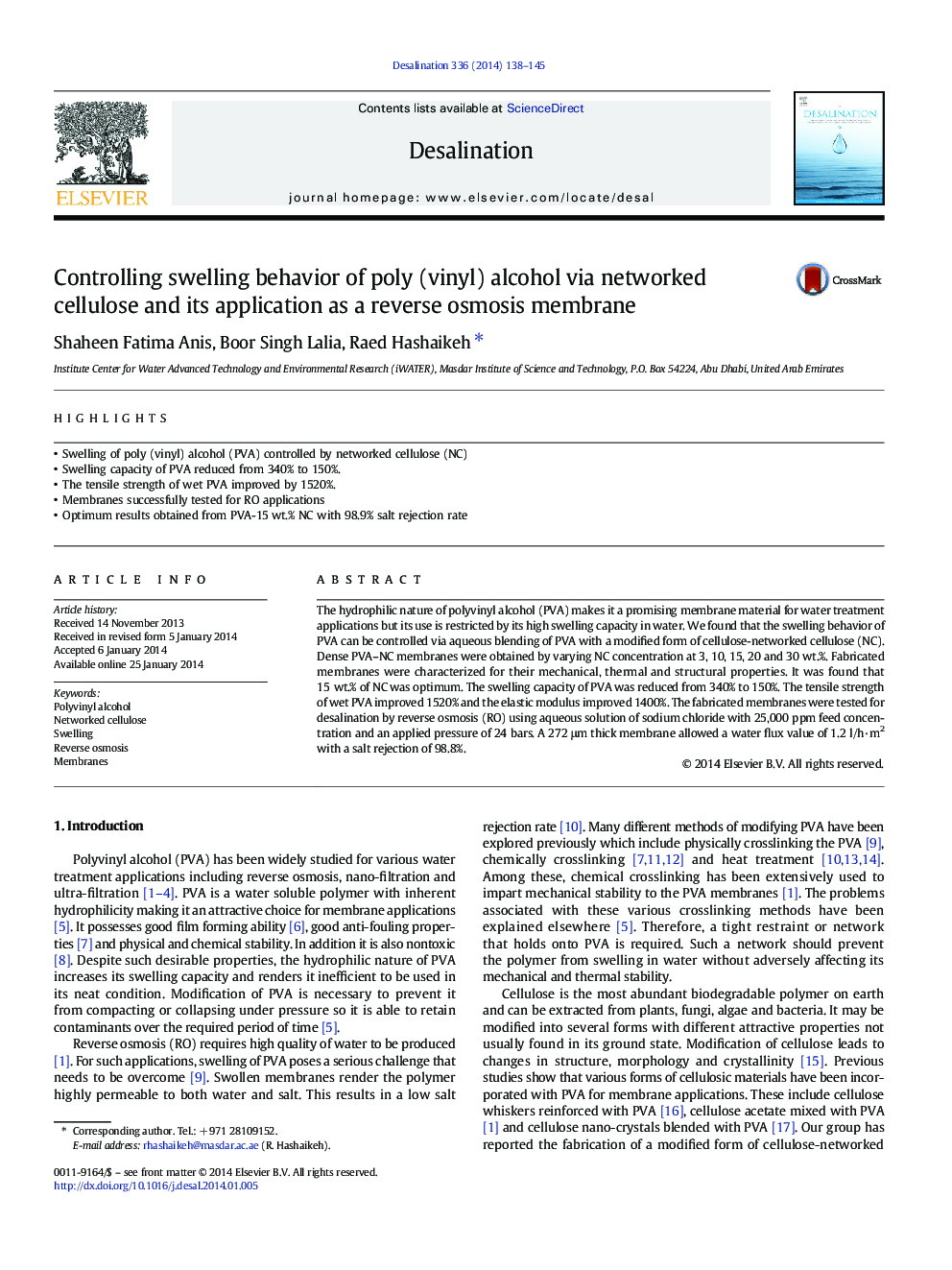| Article ID | Journal | Published Year | Pages | File Type |
|---|---|---|---|---|
| 623656 | Desalination | 2014 | 8 Pages |
Abstract
The hydrophilic nature of polyvinyl alcohol (PVA) makes it a promising membrane material for water treatment applications but its use is restricted by its high swelling capacity in water. We found that the swelling behavior of PVA can be controlled via aqueous blending of PVA with a modified form of cellulose-networked cellulose (NC). Dense PVA-NC membranes were obtained by varying NC concentration at 3, 10, 15, 20 and 30 wt.%. Fabricated membranes were characterized for their mechanical, thermal and structural properties. It was found that 15 wt.% of NC was optimum. The swelling capacity of PVA was reduced from 340% to 150%. The tensile strength of wet PVA improved 1520% and the elastic modulus improved 1400%. The fabricated membranes were tested for desalination by reverse osmosis (RO) using aqueous solution of sodium chloride with 25,000 ppm feed concentration and an applied pressure of 24 bars. A 272 μm thick membrane allowed a water flux value of 1.2 l/h·m2 with a salt rejection of 98.8%.
Related Topics
Physical Sciences and Engineering
Chemical Engineering
Filtration and Separation
Authors
Shaheen Fatima Anis, Boor Singh Lalia, Raed Hashaikeh,
